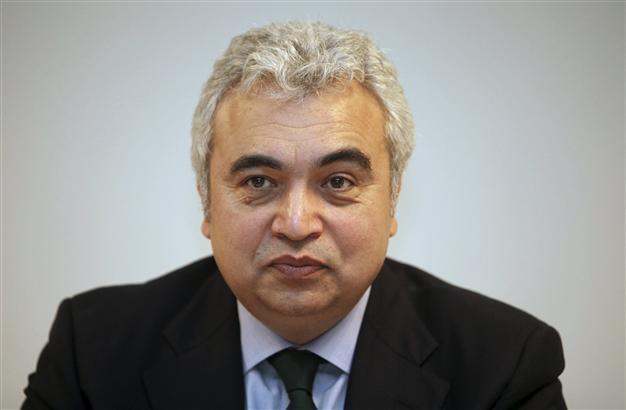New IEA chief Birol calls for “partnership” with China on first official trip
BEIJING - Reuters

REUTERS photo
The International Energy Agency’s new chief called on Sept. 9 for a “greater partnership” between his organization and China, the world’s largest energy consumer, in his first official trip.
Fatih Birol, who took over the top post at the Paris-based IEA this month, told an audience of Chinese officials and foreign diplomats in Beijing that a top priority during his four-year tenure will be to strengthen ties with emerging powers that are non-members.
“China is at the top of the list,” he said.
China is the world’s second largest oil importer, although it has been challenging the United States more and more for the No.1 spot, with its crude buys and the strength of its demand being key factors in determining global oil prices.
In April, China’s monthly imports of crude oil surpassed those of the United States.
Birol did not rule out the possibility of China joining the IEA when asked, saying only that he would “do everything possible” to deepen cooperation with China.
In prepared remarks, Birol said the IEA must bring China under the “umbrella” of the agency’s supply security system, so that in the event of a disruption to global supplies, there would be a way to coordinate a release of strategic reserves held by member states and China.
China, which has been building its strategic petroleum reserves over last few years but rarely releases details on storage levels, said last November that it had accumulated 91 million barrels, enough for nine days of use.
The IEA requires that member countries hold at least 90 days’ worth of net oil imports in reserve.
The IEA, often called the West’s energy watchdog, was set up in 1974 by developed oil-importing nations as a counter to the Organization of the Petroleum Exporting Countries.
IEA membership is restricted to countries in the Organization for Economic Co-operation and Development, which includes the major economies of North America and Europe, as well as Japan and South Korea.
